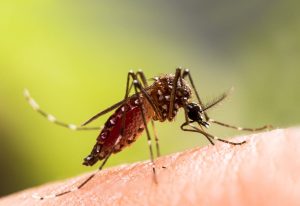
I DON’T KNOW WHEN we reached the point when people became obsessed with parenting, the who’s-doing-what-and-how of it all, but we, as a society, probably need to pump our brakes. The collective “wisdom” of parenting has reached a critical mass of contradictions and racial and class-based biased, and this childless-by-choicer just wants everyone to chill out and stop judging.
Because, seriously, poor parents are practically buried under the weight of societal expectations that they cannot meet, things like providing their children with good schools, safe neighborhoods, clean water, even lead-free environments. Parents have been arrested and jailed for attempting to give their children these things.
Here are four excellent reasons why you should stop shaming poor parents.
Attachment Parenting Doesn’t Work for Everyone
Several years ago, attachment became the new best way to parent your kids. The practice is marked by baby-wearing, co-sleeping, extended and exclusive breastfeeding, elimination communication, positive discipline, and peaceful parenting — none of which is a bad thing.
However, attachment parenting requires that young children have constant caregivers. If one parent works, the other is devoted to the child without respite. If both parents hold jobs, then they must leave their kids with private babysitters or daycare workers, who may be unable — or unwilling — to abide by attachment parenting’s tenets.
As I’ve covered before, the debate over whether to give up one income to avoid paying for daycare is a real one for working- and middle-class families across the U.S. However, that matters very little in terms of the demonization of poor parents, because…
Society Vilifies Moms, No Matter What
In today’s economy, many families need two full-time incomes in order to make ends meet. Research shows children of working mothers do better in life than those whose moms remained at home. But the characterization of working mothers as selfish, and even neglectful, leaves moms with careers to bear the brunt of traditionalist ire, whether their husbands work or not.
Although many within the “family values” sect maintain that stay-at-home mothers enjoy the greatest professional calling known to woman, the truth is that you’re only a good stay-at-home mom if you are rich, white stay-at-home mom. Black, Hispanic, and working-class mothers become “welfare queens” when they stay home to raise kids. Southeast Asian and Middle Eastern women are deemed oppressed into the role. Only when a posh, rich, white lady elects to stay at home do we pause to applaud her for being a good mother on the basis of profession alone.
Working Parents May Lack the Time to Help Children Succeed in School
My mother spent the last decade-and-a-half before retirement working for our local library system. Toward the end of her career, she was in charge of children’s programming, both in the branch and in daycares, schools, and our local Head Start location.
One year, on a conference tour, a guide began to display ways for librarians to encourage early literacy habits with parents of at-risk children. Another member of my mother’s group scoffed, and said it was pointless, that poor parents didn’t care about reading to their children.
Here’s the thing, folks. Working-class parents want their children to succeed just as badly — if not more so — than do middle- and upper-class families. But if you have to choose between checking your child’s homework and taking an extra shift to pay for that child’s food, water, and shelter, the decision isn’t all that difficult.
If you want poor kids to succeed, stop demonizing their parents and start supporting the programs that help them.
Woo Is Classist
Cloth diapers! Organic veggies! DIY cleaning products! Detox tea! GMO-free! Gluten-free! Green!
Ugh, can we just stop?
First of all, there is absolutely zero evidence to suggest that doing any of these things will keep your child free of cancer, autism, learning disabilities, and other “scary” things that every “good” parent knows how to avoid. When you buy organic, GMO-free, and gluten-free foods, you’re buying into the latest food craze. Remember when everything was advertised as “low-carb”? Same deal. Consumer product industries are lining their pockets, simply because people are convinced that their wares are somehow safer or better.
Secondly, the poor cannot afford these supposedly natural and chemical-free products. Yes, there are dozens of websites out there that will teach you how to eat organic, GMO-free, and gluten-free on a budget, but those guides actually make things worse for low-income families. By placing the onus of responsibility on the consumer — i.e., The information on how to do it is out there, you’re just too lazy and selfish to try. — the woo soldiers on, unchecked, and parents who don’t buy into the hype continue to face heaps of unprovoked judgment for their choices.
Instead of blaming poor parents, try giving them support.

-300x200.jpeg)









-300x241.jpeg)




